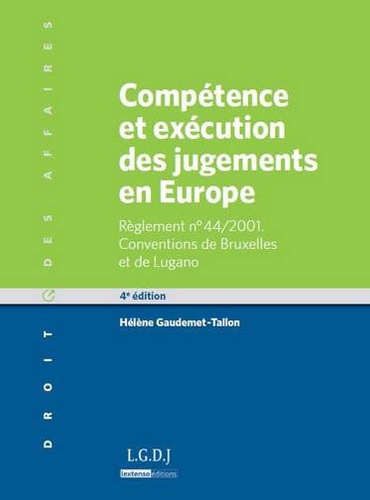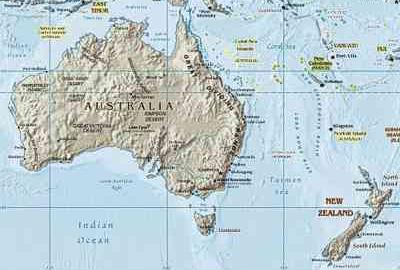In Habib v The Commonwealth [2010] FCAFC 12, a Full Court of the Federal Court of Australia considered whether the applicant’s claim against the Commonwealth for complicity in alleged acts of torture committed on him by officials of the governments of Pakistan, Egypt and the United States was precluded by the act of state doctrine. The Court allowed the claim to proceed. In doing so, the Court has, it seems, concluded that the act of state doctrine cannot, consistently with the Australian Constitution, preclude an action against the Commonwealth based upon an allegation that the Commonwealth has exceeded its executive or legislative power.
The applicant was allegedly arrested in Pakistan a few days before the US commenced military operations in Afghanistan in October 2001. He alleged that while there, and afterwards in Egypt, he was tortured by Pakistani and then Egyptian officials, with the knowledge and assistance of US officials. He alleged that he was then transferred to Afghanistan and later Guantanamo Bay, where he was tortured by US officials. He alleged that Australian officials participated in his mistreatment. The applicant claimed damages from the Commonwealth based on the acts of the Australian officials. His claim was that the acts of the foreign officials were criminal offences under Australian legislation (which expressly had extraterritorial effect), that the Australian officials aided and abetted those offences, that this made them guilty of those offences under the Australian legislation, that committing those offences was outside the Australian officials’ authority and that the Australian officials therefore committed the tort of misfeasance in public office or intentional infliction of indirect harm.
The Commonwealth contended that the Court could not determine the applicant’s claim, because it would require the Court to sit in judgment on the acts of governments of foreign states committed on their own territories. This was said to infringe the act of state doctrine, as explained in decisions such as that of the United States Supreme Court in Underhill v Hernandez 168 US 250 (1897) and the House of Lords in Buttes Gas and Oil Co v Hammer [1982] AC 888. The doctrine has been approved by the High Court of Australia: Potter v Broken Hill Proprietary Co Ltd (1906) 3 CLR 479; [1906] HCA 88; Attorney-General (United Kingdom) v Heinemann Publishers Australia Pty Ltd (1988) 165 CLR 30; [1988] HCA 25.
The Full Court rejected the Commonwealth’s contention. Jagot J (with whom Black CJ agreed) reviewed the US and UK cases and concluded that they recognised circumstances where the act of state of doctrine would not apply. In particular, she said that the UK cases supported the existence of a public policy exception where there was alleged a breach of a clearly established principle of international law, which included the prohibition against torture. She considered that the Australian authorities were not inconsistent with this approach and that it applied in this case. She also considered that the same result would be reached by considering the factors said to be relevant by the US Supreme Court in Banco Nacional de Cuba v Sabbatino 376 US 398 (1964).
More fundamentally, as noted above, Jagot J (again with Black CJ’s agreement) concluded that for the act of state doctrine to prevent the Federal Court from considering a claim for damages against Australian officials based upon a breach of Australian law would be contrary to the Australian Constitution. This was because the Constitution conferred jurisdiction upon the High Court ‘[i]n all matters … in which the Commonwealth, or a person suing or being sued on behalf of the Commonwealth, is a party’. The Federal Court has been invested with the same jurisdiction by legislation.
Indeed, the other member of the Court, Perram J, based his decision entirely on this constitutional ground. In doing so, Perram J made the obiter comment that it would be similarly inconsistent with the Constitution to invoke the Moçambique rule in response to a claim which asserted that the Commonwealth had exceeded its legislative or executive power. He considered that a previous decision of the Full Court, Petrotimor Companhia de Petroleos SARL v The Commonwealth [2003] FCAFC 3; (2003) 126 FCR 354, which treated the act of state doctrine as going to whether there was a ‘matter’ within the meaning of the Constitution, was plainly wrong. Having reached this conclusion, it was unnecessary for Perram J to consider whether there was a human rights exception to the act of state doctrine. However, without reaching a definite conclusion, he considered the point in some detail, in particular the contrasting views of whether the act of state doctrine is a ‘super choice of law rule’ requiring the court to treat the foreign state acts as valid or a doctrine of abstention requiring the court to abstain from considering those acts.
This case represents a significant development in Australian law on the act of state doctrine and, so far as Perram J’s comments are concerned, the Moçambique rule. The position adopted by the Full Court is, at the least, contestable. If it is accepted that the Moçambique rule and the act of state doctrine are legitimate restraints on State Supreme Courts, which have plenary jurisdiction, why should they not also restrain the federal courts, which have limited jurisdiction? Not every restriction on the exercise of federal jurisdiction is unconstitutional: limitation periods, procedural rules, the requirement to plead a cause of action and the rules of evidence all do so. The Moçambique rule and the act of state doctrine were well understood principles at the time of federation. It seems surprising to suggest that the Constitution operates to oust those principles without any express words, simply because it sets out limits on federal power and contains a general conferral of jurisdiction on the High Court. Indeed, in the case of the Federal Court, the Court’s jurisdiciton is provided not by the Constitution but by legislation, albeit picking up the words of the Constitution. The question is one of the construction of that legislation, not the Constitution, and whether it purported to oust those principles. In any event, both in the Constitution and the relevant legislation, reading the word ‘matter’ — which it is accepted contains limits on the Courts’ jurisdiction (eg precluding advisory opinions) — as informed by, not ousting, the Moçambique rule and the act of state doctrine is at least arguably more consistent with the historical position.
It remains to be seen whether the Commonwealth seeks special leave to appeal to the High Court.



 The much awaited fourth edition of
The much awaited fourth edition of  On May 20-21, 2010, the Academy of European Law will host a conference on
On May 20-21, 2010, the Academy of European Law will host a conference on  Created in 1959, the Seminar has welcomed leading European professors of private international law, most of whom have also lectured at The Hague Academy of International Law:
Created in 1959, the Seminar has welcomed leading European professors of private international law, most of whom have also lectured at The Hague Academy of International Law: